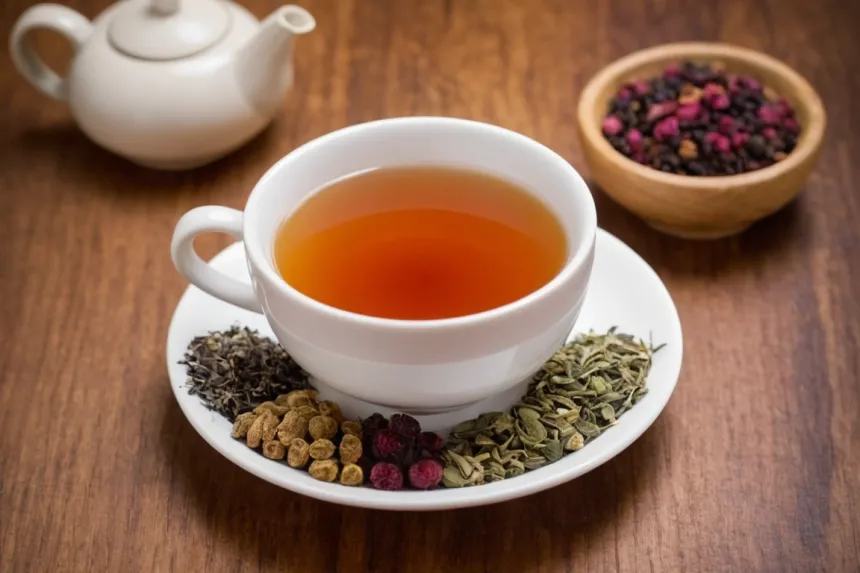Properties of Tea: Antioxidants to Improve Your Health

Tea is one of the most consumed beverages in the world, and for good reason. Besides being a delight for the palate, it has numerous properties that can benefit our health. In this article, we will explore the antioxidants present in tea and how they can contribute to improving our quality of life.
What are Antioxidants?
Antioxidants are compounds that help neutralize free radicals in our bodies. These free radicals are unstable molecules that can cause cellular damage and are linked to aging and various diseases. Antioxidants, therefore, play a crucial role in the prevention of these conditions.
Benefits of Tea Antioxidants
Cellular Protection
Tea, especially green tea, is known for its high concentration of antioxidants, particularly catechins. These substances are powerful cell protectors that help combat oxidative stress, thereby reducing the risk of developing chronic diseases such as cancer and cardiovascular diseases.
Improved Cardiovascular Health
Regular consumption of tea may have positive effects on heart health. Studies have shown that the catechins and other antioxidants present in tea can help improve vascular function, lower blood pressure, and decrease levels of LDL cholesterol, known as "bad cholesterol." This translates to a lower likelihood of experiencing cardiovascular problems.
Support in Weight Loss
Tea has also been associated with weight loss and metabolism regulation. Catechins, in combination with caffeine present in some varieties of tea, may increase fat burning and enhance physical performance. This makes tea a popular choice among those seeking to maintain a healthy weight.
Promotion of Brain Health
The antioxidants in tea not only benefit the body but also the brain. Research suggests that regular tea consumption may be linked to a reduced risk of neurodegenerative diseases such as Alzheimer’s and Parkinson’s. The bioactive compounds in tea may help improve cognitive function and protect neuronal cells.
Types of Tea and Their Properties
Green Tea
Green tea is famous for its high concentration of catechins. It has been extensively studied for its antioxidant and anti-inflammatory properties. Additionally, it is low in calories and can be enjoyed both hot and cold.
Read also
Black Tea
Black tea, although it contains fewer catechins than green tea, is rich in other antioxidants called theaflavins and thearubigins. These compounds also offer health benefits, such as reducing the risk of heart disease and improving digestive health.
White Tea
White tea is the least processed of all teas and is known for its delicate flavor. It contains a high concentration of antioxidants, making it a nutritious and highly beneficial option.
Conclusion
Incorporating tea into your daily routine can offer a variety of health benefits, thanks to its antioxidant properties. From improving cardiovascular health to promoting brain health, tea proves to be a beverage worth enjoying regularly.
For more news on health and wellness, I invite you to read other articles on my blog. Your health deserves to be a priority!











































